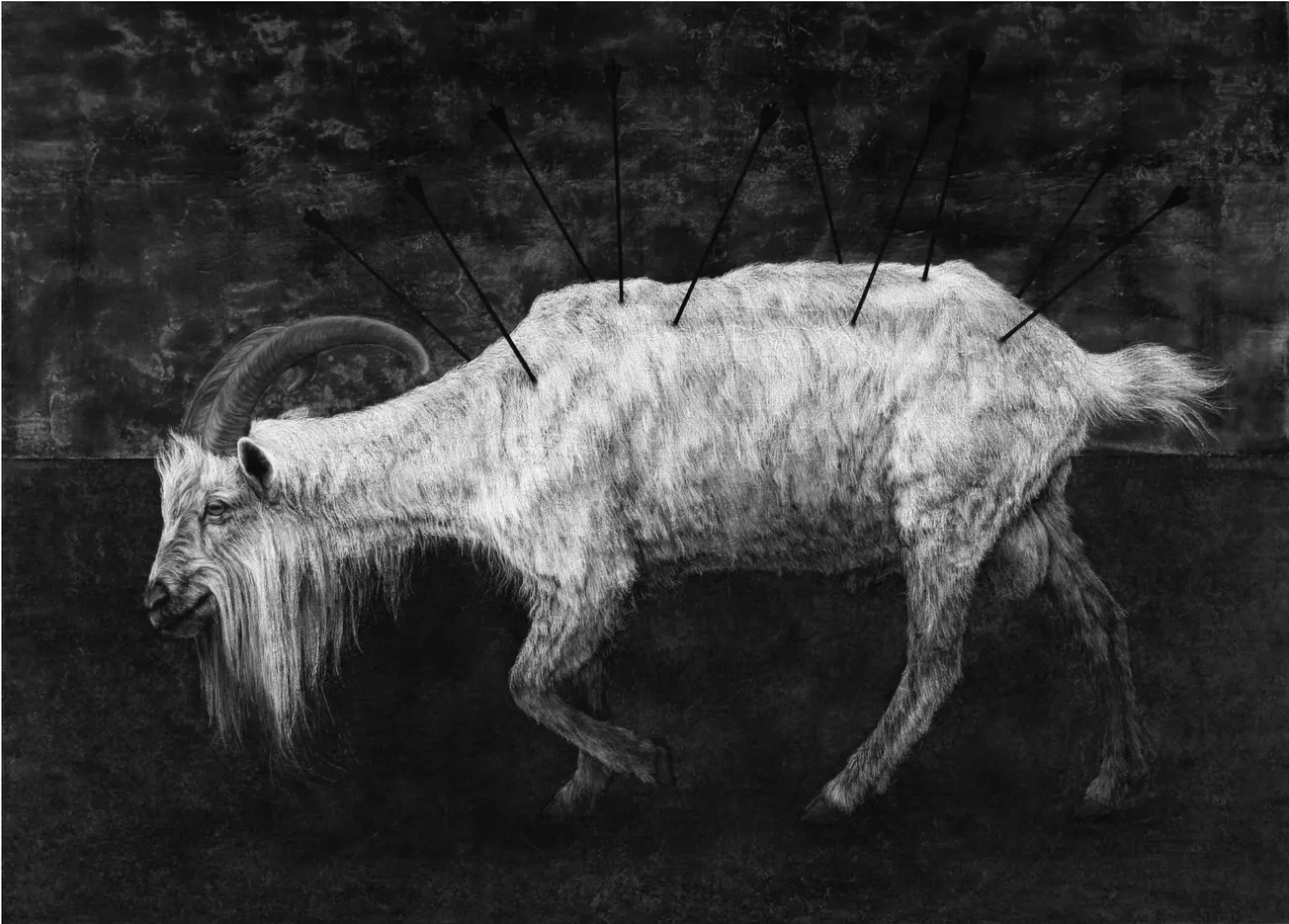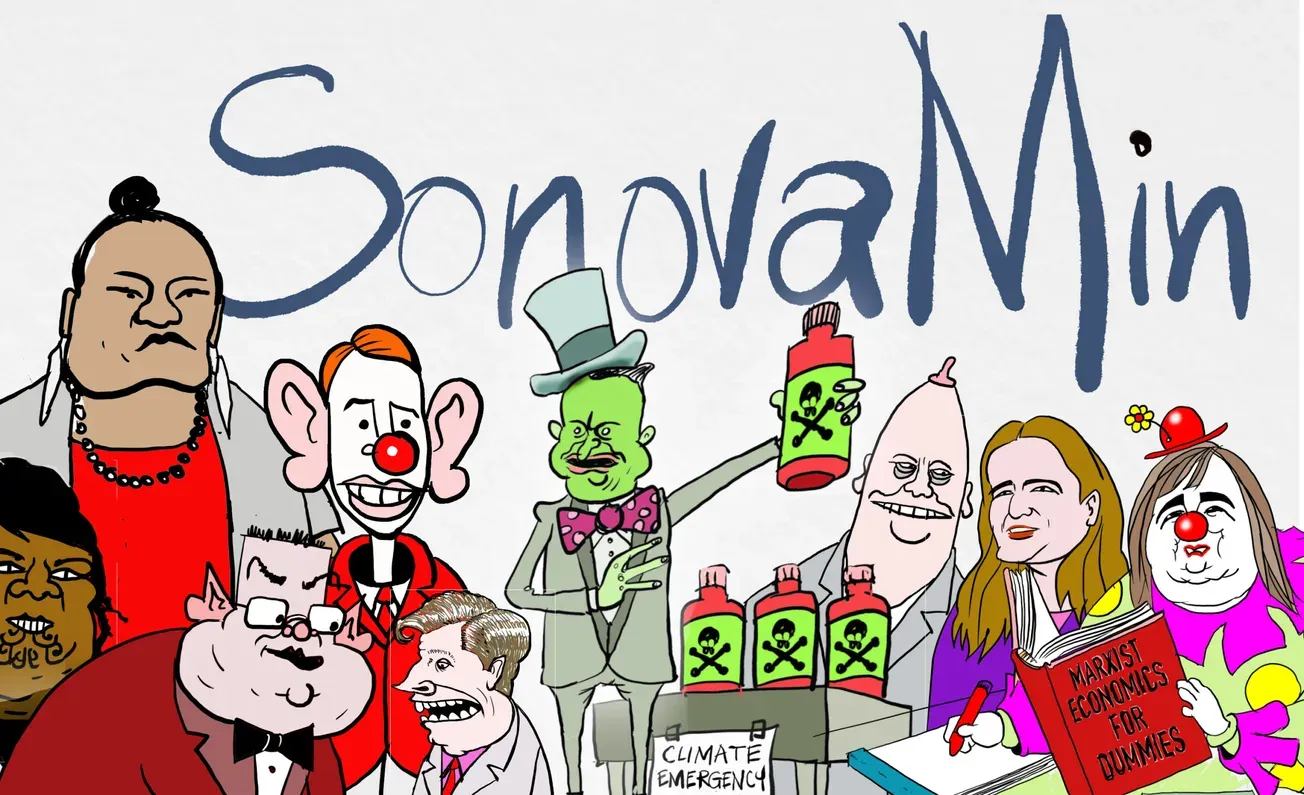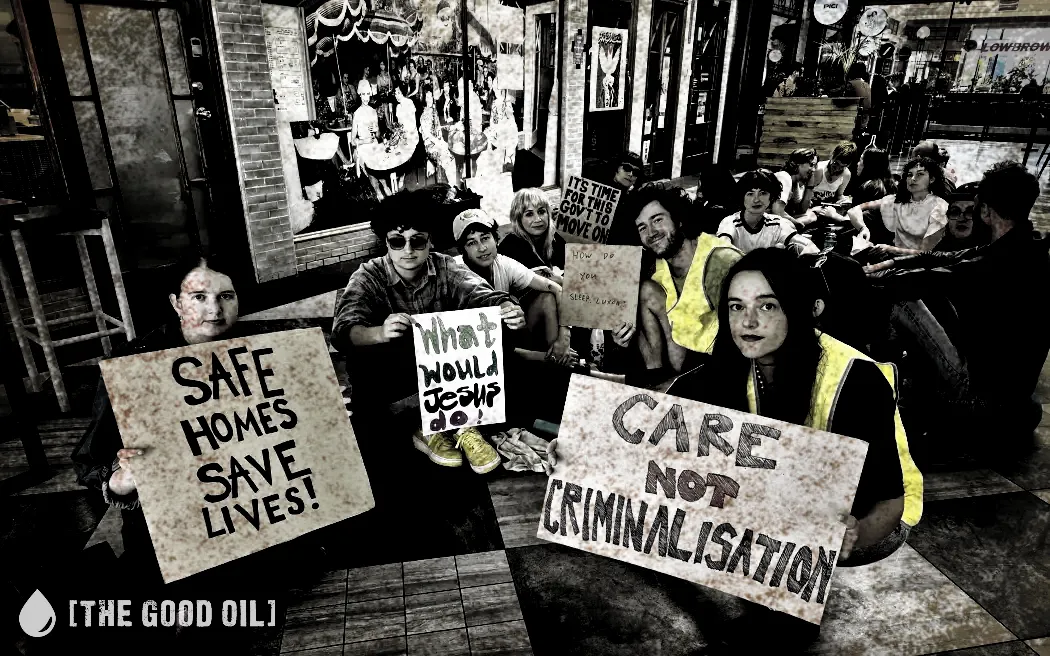Table of Contents
Andrew Mahon
mercatornet.com
Andrew Mahon is a Canadian-British writer based in London who has written for the Spectator, the Daily Wire, Conservative Woman, New English Review, Brexit Central, Catholic Journal and others.
George Orwell invented the term “groupthink” for his dystopian classic Nineteen Eighty-Four, first published in 1949. A few years later, the term was already in clinical use to describe a common psychological phenomenon.
The idea is that people have a tendency to conform their own thoughts to those of the people around them, while believing themselves to be independent thinkers. Peer pressure is at least an important element in groupthink. With successful propaganda, bad actors can take advantage of groupthink, as a technique with which to control a society. This is what happens in Orwell’s novel.
A theory of mob violence by the French philosopher René Girard sets the phenomenon of groupthink in a wider anthropological context. Girard argued that human desire itself is mimetic. In other words, human beings don’t just conform their thinking to others, but also copy their desire from others. Like groupthink, human beings are unaware of the origin of their desire, believing it to be something that originates in themselves. When multiple people desire the same things, rivalry results, leading to jealousy, snobbery, hatred and violence.
This chaotic situation doesn’t remain a matter between individuals. Gradually, society bifurcates into antagonistic groups, each united by a common hatred of the other. As one group gets larger than the other its hatred of it grows, rather than reduces, in proportion to its increasing superiority. When the larger group includes almost all of society, it becomes a mob, and seeks the annihilation of the smaller group, or in some cases, the individual—the scapegoat, onto whom it has channeled all its hostility.
For the mob, the scapegoat is the source of all problems, and must be eliminated for the greater good. Nearly everyone in the mob believes this, and anyone who challenges it is denounced and banished. Few dare question the mob, and instead succumb to groupthink. It’s much easier.
Girard has his critics, and inexplicably, Orwell is ignored wherever his warnings are most needed, but one thing that has become undeniable over the past two years is that groupthink is one of the most powerful forces in the world.
The pandemic as groupthink
The pandemic presented a single uniting truth: a pandemic is bad, and we must act to save lives. Along with this great truth, however, were grouped a multitude of half-truths and outright lies that all became part of the established narrative.
But it was a package deal. You either accepted the narrative as presented by the politicians, experts, and media, or you were in the other group—a victim or purveyor of misinformation and disinformation, a something-denier, an anti-something. There was no room for nuance, subtlety, scepticism, independent analysis of evidence, or even honest questions. There was only a binary choice: pro or con. And the more successful the propaganda, the more powerful the groupthink, and the larger the pro-narrative group became.
It was obvious to anyone who scratched the surface of the narrative that something was amiss. But once people had planted their flags, they weren’t going to budge. And voicing doubts could be costly to one’s career and relationships.
In 1841, Charles MacKay wrote: “Men, it has been well said, think in herds; it will be seen that they go mad in herds, while they only recover their senses slowly, and one by one.”
The pro-narrative groupthink herd didn’t want anyone to recover their senses. Instead, as mobs do, their goal was to grow large enough in order to eliminate the smaller group—the scapegoat.
But that stubborn group just wouldn’t get small enough to eliminate. And as men began to recover their senses one by one, the smaller group began to grow, and the mob’s target narrowed and shifted as required.
The ideal scapegoat: the unvaccinated
First, it was the lockdown sceptics that attracted the mob’s hostility, then the “anti-maskers”. But the unvaccinated proved to be the best scapegoat candidate of all. Canadian Prime Minister Justin Trudeau illustrated this perfectly, when he said of the “anti-vaxxers”: “They don’t believe in science, they’re often misogynistic, often racist. They take up space, and with that we have to make a choice—in terms of a leader in a country—do we tolerate these people?”
In a 2019 interview with the late Roger Scruton, journalist Douglas Murray observed that those on the political left are always demanding the same things everywhere, whereas those on the right tend to demand very different things. “Every country I go to” he said. “The left is after the same set of demands in the same order, and conservatives are always conserving something slightly different in each place.”
Conservatives are more resistant to groupthink by nature. The things they wish to conserve are usually things local, traditional, obscure. Where Liberals today operate on the global level, true conservatives usually operate on the local level.
Groupthink and globalism
It is perhaps more helpful to think in terms of the globalist/localist distinction, rather than the Left/Right distinction.
Groupthink thrives among the globally-minded liberals, like Trudeau, who think the world’s problems can be solved at the global level—preferably by them or people like them. Their concerns are not rooted in any specific place, and they ignore any considerations that are local in nature. But in the end, such people have only one option available to them—to eliminate those who refuse to go along with their altruistic solutions for the world.
Globalists can never be anything but a mob seeking the elimination of a scapegoat. It is their singular goal, although they do not realise it. Globalists are inevitably totalitarians.
In February, something unexpected happened. As men were recovering their senses slowly, one by one, this growing group of disparate localists, who wanted the infringement on their liberties to end, found a unified voice in the Canadian truckers’ convoy that drove to Ottawa and captured the world’s attention.
From the perspective of the globalists, these disagreeable localists weren’t meant to speak with one voice like this, and for them to do so was as disconcerting as it was unacceptable. They were an obstacle to the great solutions that the globalists were working towards. They had to be crushed.
But they had spoken in a loud, unified voice that couldn’t be ignored. The groupthink holding the mob together began to loosen its grip and the scapegoat mechanism shifted into reverse as pandemic restrictions rapidly started to be lifted all over the world.
Groupthink and the invasion of Ukraine
Then Russia invaded Ukraine, and it was as if this scenario started all over again.
Again, there is a unifying, great truth: invading a sovereign country and starting a war is bad, and we must respond to Russia’s aggression. But along with this great truth comes a plethora of half-truths and lies in another package deal that has to be accepted or rejected in its entirety. Anyone who questions, cautions, or points out the complexities of the situation, is against the mob and must be silenced. Interestingly, the very people who pushed the earlier narrative most are also the ones pushing this one most.
But of those who had peeled themselves off from the earlier groupthink, it is perhaps more surprising that half of them have immediately attached themselves to the new groupthink. The smaller group of men recovering their senses one by one that had grown into a force to be reckoned with, has been cut in half. Many who were taking abuse for thinking independently only a few weeks ago are now abusing others for doing the same.
Once again the mob-scapegoat posture has been assumed. How many people are left with the courage and energy to oppose multiple narratives at once?
Those left in the smaller group try in vain to convince others of what they see as the truth. Exasperated, they tell others to “wake up”, or call them “sheep”. It’s no use. The scapegoat mechanism is far too deeply embedded in human nature to reason or insult our way out of.
Is it possible to escape?
The only hope is something more like religious conversion—which is precisely what Girard thought. Christianity, he argued, exposed the scapegoat mechanism, and disabled it. In Christ, God himself became humanity’s scapegoat. Christianity calls each of us to imitate Christ and likewise to become the scapegoat ourselves.
This has been going on for far longer than just the past two years. But as society has abandoned Christianity over the decades and centuries, the scapegoat mechanism has grown more powerful. For years we’ve been hearing of the growing polarisation of society, which seemed to reach a high point with the Brexit vote and Donald Trump’s election.
It would be naive to think that these opposing elements of society would remain in equilibrium. One group will turn into a mob and the other a scapegoat. Coexistence has become impossible. The world has never been so globally connected as it is today, and it appears we’ve reached the point where the global mob feels so emboldened that it’s nearly ready to eliminate the scapegoat and solve all the world’s problems in one sacred act of violence. To the mob, the scapegoat is always the one thing standing in its way.
The issues—pandemic, war, climate change, wokery, whatever—may be completely unrelated, but the particular issues are not the real story. Whatever the truth actually is, one can be certain that it’s complicated and almost never one of only two options. The real story is the repeated approaches to Girard’s scapegoat mechanism that are occurring in quicker succession on a global scale.
What is common to all these approaches is groupthink—the bigger, globally-minded group is always described as “all of us” or “the world”; the smaller group is always smeared with words like “anti-something”, “something-denier”, “something-sympathiser”, or the always reliable “Nazi”, “racist”, or “misogynist”. These slurs are merely ways of avoiding the conversation that might lead one to recover his senses.
By the continual switching of issues, not only do most people remain unaware of the scapegoat mechanism, but those of us in the smaller group are being divided and conquered. I am not arguing that there is someone behind all this intentionally dividing in order to conquer. If Girard is right, this is just the way human nature operates. But it’s manifestly clear that we are being divided and conquered.
No doubt certain individuals or groups are taking advantage of it as it happens, manipulating the groupthink, and using the mob to achieve their ends. It doesn’t really matter who these people are. If it weren’t them it would be someone else. But their strength is entirely dependent on this mechanism proceeding without our knowledge. The solution is not to convince those possessed by mob groupthink to change their minds, but to expose the scapegoat mechanism itself.
Whether this can happen without Christianity is another question.









